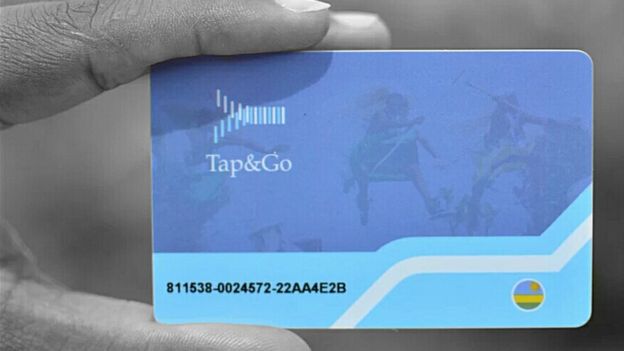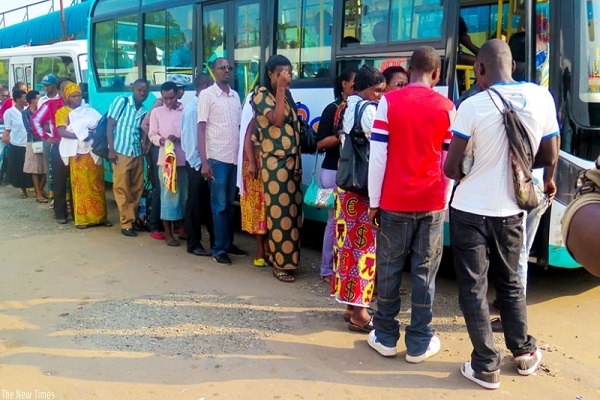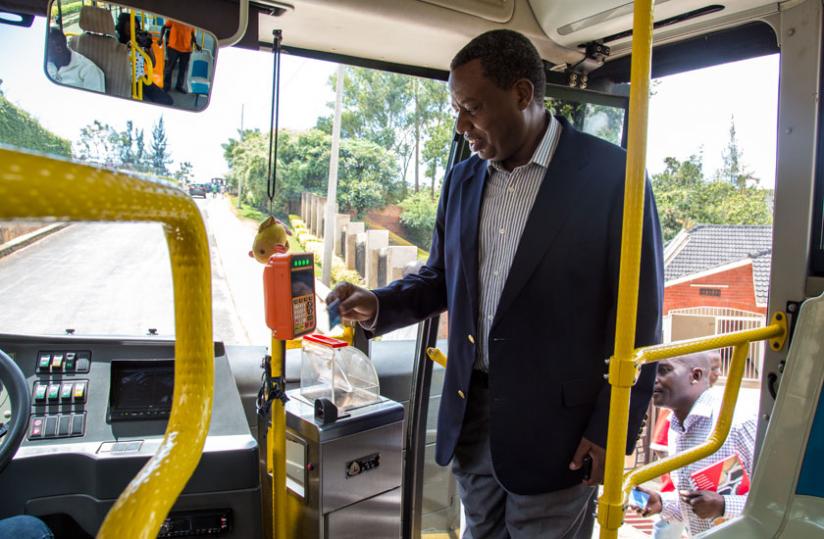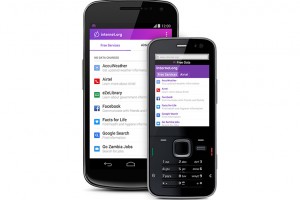A quiet revolution is taking place in the beautiful mountainous landscape of Rwanda and this has nothing to do with any form of civil unrest as Western media would have us believe whenever Africa is mentioned in a byline. The Rwanda Utilities Regulatory Agency (RURA) in conjunction AC Group -a Kigali tech startup- and Kigali City bus operators has introduced the Tap & Go Card, a cashless bus Fare payment system similar to the ill-conceived Google-powered BebaPay e-fare payment model, introduced in Kenya in 2013 and promptly killed off.
Tap & Go Card
According to an interview with AkilahNet, Patrick Buchana, the founder and CEO of AC Group (Formerly AirClerk Ltd) partnered with Airtel Rwanda to release the versatile Tap & Go card which goes for RWF 1,000 ($1.3) and can be topped up using mobile money (and bank) will be used to to clear the transport fare as well as shop for items and other services at stores that support the payment system.
AC Group created and built a card-based cashless payment system for public transport, and we are working with the government to build a smart transport system, which will eventually be a key contributor to developing a smart city as part of our Vision 2020 goals.
Moreover, AC Group launched another use case for the cards where people can now use their same transport cards in shops, at the stadium for events, and at restaurants. This was done in partnership with Airtel~ Patrick Buchana
The introduction of the cashless payment system has brought mixed reactions from Rwandan commuters and feelings of uncertainty from a number of bus conductors who will be made redundant with an automated system of cash collection. Below are the Pros and Cons of a cashless e-fare bus payment system already in place in Kigali:

Photo Credit: BBC. Tap & Go card
Pros
- Cut costs of printing tickets: The introduction of the Tap & Go card drastically reduces the costs incurred by bus companies which won’t have to print tickets for every route they make. Hopefully this will reflect in higher profit margins and lower bus fares.
- Environmentally friendly : Kigali City is considered one of the cleanliest and greenest cities in Africa so it goes to reason that the authorities would embrace an innovation that promotes Eco-solutions that cut down on littering while they safeguard the environment by cutting down on usage of paper.
- Allow Monitoring of the public transport system by authorities and promote efficiency and transparency in the transport sector.
“The system will ease revenue collection for bus operators. It also has ability to monitor the location of the bus, its speed and information about passengers onboard,”
- Save on Time usually taken up by queuing up to purchase the tickets and later in verifying those same tickets before commuters alight from the bus
- Get rid of theft: Cases of unfair and indiscriminate pricing of fares coupled with ticket forgeries will be eliminated entirely with the usage of e-fares along with unscrupulous appropriation of cash collections from commuters.
Cons
- High costs incurred in rolling out the new system infrastructure and training bus operators on how to use it might offset profits.
- Privacy concerns on the side of commuters who can be positively identified using the Tap & Go cards and closely monitored by the authorities. The Government should come out and explain how this information will be handled and how it will affect the commuters.
- Tourists: Rwanda intends to entirely do away with cash payments which raises the issue of foreigners temporarily visiting the country or simply passing through. It would be an inconvenience to pay for a Tap & Go card that will only be used for a few transactions and then discarded.
- Some people such as upcountry residents mostly dealing in cash transactions might not have non-cash means of paying for a bus fare. Many would be ignorant on how to use e-cards to pay for their fare when in Kigali. Completely getting rid of a cash payment method would be a disservice to them.
- Loss of jobs: Bus conductors stand to lose their livelihood when the cashless payment system fully takes off. Services such as collecting fares will be automated prompting the bus companies to lay them off as they embrace the new, far more efficient system.

Photo Credit: Igihe. Rwandans queue up next to a bus
It should be noted that the cashless payment system only affects bus operators as the title of this article states. Drivers of Matatus (Taxis) will still collect cash payments with the help of conductors. Commuters who use/have used both systems can best explain the merits and faults of each.
Rwanda has won numerous accolades over the years for innovation, governance, cleanliness, tourism and technological advancement in the process placing the landlocked East African country in the best possible position to introduce a cashless bus fare system. If this payment system is successfully implemented in Rwanda, other African countries will hopefully take a leaf and implement the same structure to their transport sectors fraught with corruption, thefts and poor accountability.
Featured Image: TheNewTimes
Discover more from Dignited
Subscribe to get the latest posts sent to your email.












